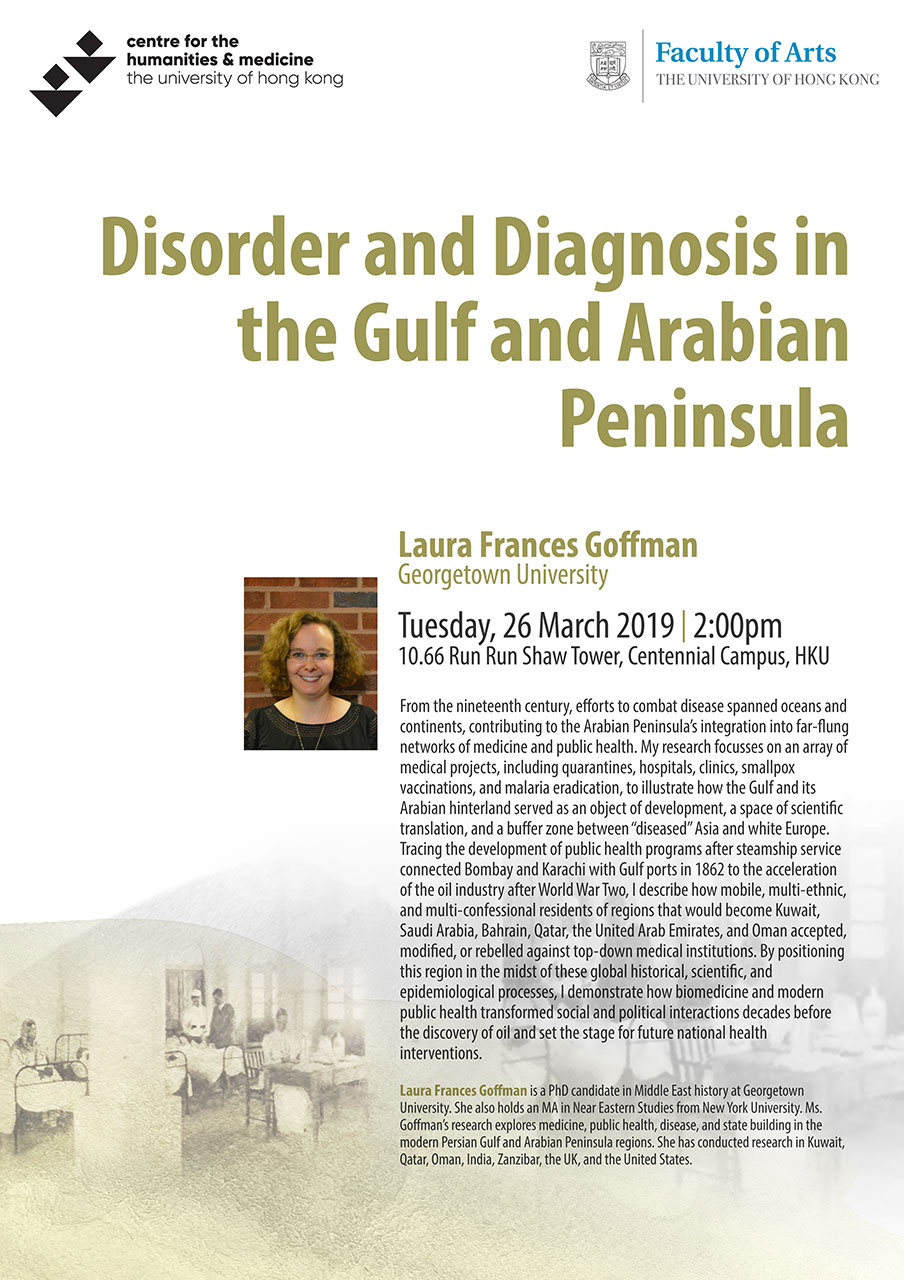Disorder and Diagnosis in the Gulf and Arabian Peninsula
Date: March 26, 2019
Time 2:00 PM
Venue: 10.66 Run Run Shaw Tower, Centennial Campus, HKU
 Abstract Abstract
From the nineteenth century, efforts to combat disease spanned oceans and continents, contributing to the Arabian Peninsula’s integration into far-flung networks of medicine and public health. My research focusses on an array of medical projects, including quarantines, hospitals, clinics, smallpox vaccinations, and malaria eradication, to illustrate how the Gulf and its Arabian hinterland served as an object of development, a space of scientific translation, and a buffer zone between “diseased” Asia and white Europe. Tracing the development of public health programs after steamship service connected Bombay and Karachi with Gulf ports in 1862 to the acceleration of the oil industry after World War Two, I describe how mobile, multi-ethnic, and multi-confessional residents of regions that would become Kuwait, Saudi Arabia, Bahrain, Qatar, the United Arab Emirates, and Oman accepted, modified, or rebelled against top-down medical institutions. By positioning this region in the midst of these global historical, scientific, and epidemiological processes, I demonstrate how biomedicine and modern public health transformed social and political interactions decades before the discovery of oil and set the stage for future national health interventions.
Bio
Laura Frances Goffman is a PhD candidate in Middle East history at Georgetown University. She also holds an MA in Near Eastern Studies from New York University. Ms. Goffman’s research explores medicine, public health, disease, and state building in the modern Persian Gulf and Arabian Peninsula regions. She has conducted research in Kuwait, Qatar, Oman, India, Zanzibar, the UK, and the United States.
|